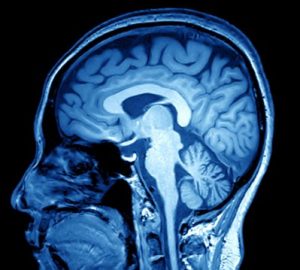If an ancient herb could boost your whole body health, thyroid function, muscular strength, and cognitive function, would you be interested?
It happens that Ashwagandha, one ingredient in Hormone Zone, has studies to show it can go all this and more.
It’s an ancient medicinal herb, and it’s gaining a lot of popularity in modern times.
Technically, it’s considered an adaptogen because it can be used to help the body manage stress, both physically and mentally. But there’s even more to Ashwagandha.
Here are the details, how you can add it to your supplement regimen, and 10 Science-Based Benefits of Ashwagandha.
What is Ashwagandha?
Ashwagandha is an herb that been used for more than 3000 years in Ayurveda medicine (1).
Its botanical name is Withania somnifera. The plant itself is a shrub with yellow flowers native to India and North Africa.
Ashwagandha contains compounds called withanolides. The higher concentration of withanolides, the more potent it is medicinally. It’s these compounds within Ashwagandha that have been shown to offer most of the benefits listed below (1).
10 Science-Based Benefits of Ashwagandha
1. Reduces Cortisol Levels, Stress, & Anxiety
Let’s start with stress.
We all experience it. And in the short-term, stress can be perfectly healthy as a needed component of our body’s response to danger.
When stress is chronic and the result of mental challenges, rather than danger and physical ones, it can become very harmful to the body.
In fact, we have a hormone that increases when our body is stressed. When this hormone, called cortisol, remains at high levels in the bloodstream, it can contribute to insulin resistance.
Studies have shown that Ashwagandha can reduce cortisol levels, even up to 30% in chronically stress adults (2, 3, 4).
What’s more, researchers have found that it can block stress pathways in the brain, reduce symptoms of anxiety disorders, and improve insomnia (3, 5, 6).
2. It May Improve Brain Function, Including Memory
One emerging area of medicine is brain health, reduction of degenerative diseases, and memory improvements.
Lab tests have shown that ashwagandha may reduce memory and brain function issues caused by injury or degeneration (7, 8).
How? It may be due to its antioxidant activity, which reduces free radicals in nerve cells.
What’s more, animal studies have shown memory impairment reversal, and reaction time and attention improvements in humans (7, 8).
3. May Reduce Depression Symptoms
Another area of brain health and ashwagandha supplementation is depression.
At least one study has shown a significant reduction in severe depression while taking daily ashwagandha, although a history of clinical depression in the participants of this study has been questioned (9).
Other studies have shown promise in reducing depression with ashwagandha, but more studies are needed to draw conclusions (9).
4. Supports Thyroid Health
Ashwagandha may improve overall thyroid health by decreasing thyroid stimulating hormone and increasing T3 levels.
In fact, one study found that after supplementing for 2 months, men and women with subclinical hypothyroidism experienced these results (32).
This is exciting news for anyone who is seeing thyroid function decline.
5. Reduces Blood Sugar Levels
In addition to improving insulin sensitivity by reducing cortisol, Ashwagandha can directly reduce blood sugars according to several studies (10, 11, 12).
What’s more, a lab study has shown that it can increase insulin sensitivity and insulin secretion.
Why is this important?
Chronically high blood sugars can contribute to many medical issues including Diabetes, artery hardening, insulin resistance, cardiovascular disease, and more.
6. Improve Heart Health by Improving Cholesterol and Triglycerides
Ashwagandha may also improve cholesterol and triglyceride levels.
In fact, animal studies have shown significant decreases in cholesterol, up to 53%. In addition, triglycerides have decreased by up to 45% in one study (13).
While showing less dramatic results, human studies also report impressive improvements in cholesterol, including 17% decreases in LDL and 11% decreases in triglycerides with high-dose ashwagandha controlled human studies have reported less dramatic results, they have observed some impressive improvements in these markers (14, 15, 16).
7. Anti-Cancer Properties
To stop cancer, cancer cells need to experience apoptosis or programmed cell death. Without it, cancer cells can continue to grow and proliferate unchecked.
Lab and animal studies have shown that ashwagandha may help induce apoptosis while reducing the growth of new tumor cells (17).
It also impedes the growth of new cancer cells in several ways (17).
In fact, animal studies suggest its efficacy in many cancers, including breast, lung, colon, brain and ovarian cancer (18, 19, 20).
However, since human studies are still lacking, more research needs to be conducted for conclusive evidence.
8. Testosterone and Fertility Boost
For men, Ashwagandha may improve testosterone levels and reproductive health (21, 22, 23, 24).
In fact, a study of 75 infertile men showed increased sperm counts, quality and function with ashwagandha supplementation. It also showed increases in testosterone and antioxidant levels.
9. Muscle Mass, Strength, and Endurance
Unless you proactively increase strength year after year, our muscles lose mass and strength each year we age.
Ashwagandha can help.
Studies have shown increases in strength, increased muscle mass, and reduced body fat with daily ashwagandha supplementation (25, 26).
And there’s more.
One small study showed that taking an Ashwagandha supplement twice per day for 2 months significantly improved endurance and physical performance, including V02Max, leg muscle strength, and sprinting velocity (27).
Although the supplementation needs to be used in conjunction with a workout program, these results are promising for those who want to keep up muscle strength.
10. It May Reduce Inflammation
Both animal and human studies support Ashwagandha’s effects against inflammation.
In animal studies, it’s been shown to directly decrease inflammation. In human studies, increased immune function, and decreased markers of inflammation including C-reactive protein, even up to 36% (28, 29, 30, 31).
Safety of Ashwagandha
For most people, Ashwagandha supplements are completely safe.
Care should be taken though, if pregnant or breastfeeding, if taking sedatives, if diagnosed with an autoimmune disease or Type 1 Diabetes, or is there are concerns of low blood sugars or low blood pressures. In these cases, always consult your doctor before adding Ashwagandha.
Where to Find Ashwagandha
Ashwagandha can be found in many stand-alone supplements.
Even better, it’s one of the main ingredients in Thyroid Zone, which is specifically designed to thyroid health. Thyroid zone uses precise amounts of Ashwagandha and other thyroid-supporting nutrients to improve thyroid health and overall health.
The Bottom Line
As an ancient medicinal herb, Ashwagandha has been used for thousands of years.
Now, modern practitioners are looking to it more and more. It offers benefits for the entire body, from mental health, reduced anxiety and depression, better blood sugars, heart health, and even athletic performance.
It’s easy to take, and one of the main components in Thyroid Zone.
















